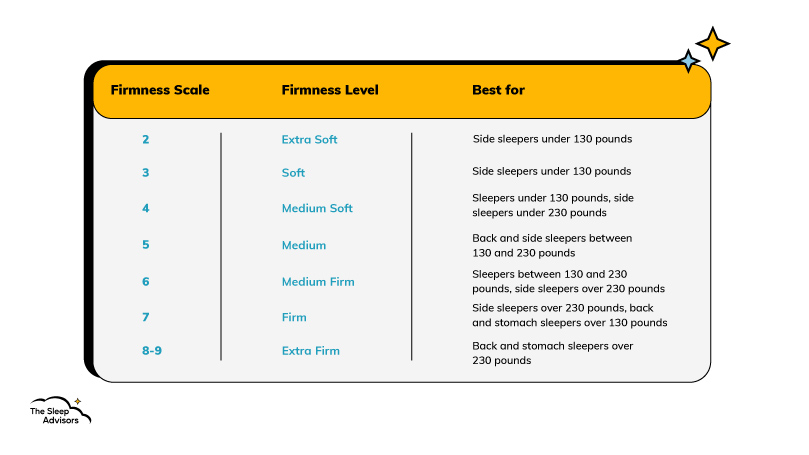What causes back pain at night?

First off, let's list off the most likely suspects. After all, if your back only hurts at night, that weeds out quite a few potential sources.
For example, if you have chronic low back pain throughout the day, there are many injuries and underlying conditions that could be causing it.
However, if you only have back pain at night, it means that lying down is the problem. Thus, something is probably wrong with either your sleep position, your mattress, your pillow, or a combination of the three.
That being said, we will also point out that the pain symptoms might just be the most obvious at night. For example, if you have very dull joint pain, it might not be that noticeable during the day but it becomes hard to ignore at night where there are no distractions.
But for the moment, we're going to focus on that first category.
Can a bad mattress cause back pain?

We'd recommend starting your investigation off by looking at your mattress, as it's a very likely culprit. In fact, we even have an entire article just talking about how a mattress can cause back pain.
So, we're just giving you the TL;DR here.
The main thing to keep in mind here is that, depending on your sleeping position, you'll need a softer or a firmer mattress.
And this all relates to how your spine is positioned and how your weight affects the mattress.
Namely, the heavier a person is, the easier it is for their body to sink into the mattress.
And you can look at this table to see how it plays out. But we'll also discuss each sleeping position briefly.

Side sleepers
If you're a side sleeper, you want your shoulder and hip to sink into the mattress just enough for your spine to stay straight. But don't go overboard! If you're on the heavier side, the mattress might need to be a bit firmer, just to ensure that you don't sink too far into the mattress.
And since nearly 80% of people are side sleepers, getting this wrong is where a lot of back pain comes from. Side sleepers can also benefit from a small or a full-length body pillow, as it will help them keep their spine straight. Just make sure the body pillow isn't too thick, as it might put some pressure on your pelvis. You can also try using a rolled towel under your waist.
Stomach sleepers
Stomach sleeping generally isn't advised as it puts pressure on your lower back. However, if this is your sleeping position of choice, make sure to get a slightly firmer mattress. This is because you don't want your pelvis to sink into the mattress and create a forward bend in your spine.
You can also place a pillow beneath your pelvis to stop this from happening. However, if you find that you just remove the pillow in your sleep, consider changing your sleeping position.
Back sleepers
For back sleepers, it's a bit of a balancing act. They don't need a mattress that is too soft but usually don't want a mattress that's too firm either. So, medium firm mattresses are usually a safe bet
Back sleepers are also the only ones who can take full advantage of adjustable bed frames, which can help take the pressure off your spine. However, you might want to avoid sleeping on your back if you have sleep apnea or a similar condition.
Can the wrong pillow cause back pain?
When it comes to your lower and middle back, the mattress you sleep on is king. However, if you have a kink in your neck and aches in your upper back at night, you might be using the wrong pillow. And just like with mattresses, different sleeping positions require different types of pillows.
This mostly just relates to “how tall” the pillow is – also called the loft. However, the firmness of the pillow does also play a role. So, let's quickly go over the different sleeping positions and what they need.
Side sleepers
If you want to sleep on your side and avoid neck pain, you need a pillow with a big loft. After all, it needs to cover the distance between the end of your shoulder and your cheek so that your neck and spine can stay in a straight line.
Also, if you're going for a fluffy pillow like a down pillow, take into account how much the pillow will compress during the night. And if you opt for memory foam, check whether it's a high-density foam, the one usually used for orthopaedic pillows or traditional memory foam.
Stomach sleepers
Just like with mattresses, stomach sleepers have to be the most careful to avoid having poor sleep. And that's because stomach sleeping puts your spine in a weird angle, where your head could end up tilting to the side.
This is why stomach sleepers generally need a very flat pillow beneath their head. It should be barely noticeable, as your neck and spine are already in a straight line when you lay on your stomach.
Back sleepers
Back sleepers generally want to choose a pillow that's somewhere in the middle. You don't want a pillow that has a very high loft, as your head will be tilted forward. However, you also don't want a completely flat pillow, as it might put some strain on your neck.
With that being said, back sleepers can occasionally use a larger pillow. For example, when dealing with acid reflux or similar conditions.
Injuries that can cause back pain at night

So far, we've mostly focused on sources of back pain that can be fixed. In this category, we can also lump in muscle strains, as your back muscles will go back to normal in due time and back pain that resulted from poor posture during the day.
Here, just do your best to sit up straight and move around regularly and you should be mostly fine.
However, nocturnal back pain can also be caused by injuries that are a bit more difficult to deal with. Injuries can often result in sharp pain that will stick around for quite a bit. So, seeing a healthcare professional is essential.
And while we strongly discourage self-diagnosing, we will go over some of the more common injuries that can cause nighttime back pain.
This information likely won't help you relieve symptoms but if it gets you to go to the doctor – we've done our part.
Problems with your spine or your bones
One of the more common causes of back pain at night is disc degeneration. Discs are like shock absorbers between the bones of your spine. However, over time, they can be damaged.
This is why older people are at higher risk of disc degeneration. And once the discs can no longer serve their primary purpose, you can experience mild to debilitating pain at night, as your spine no longer has cushioning.
Along the same lines, things such as inflammatory arthritis or even some neurological disorders can lead to a similar experience. This is why it's important to keep track of your family's medical history and seek out physical therapy before the issue becomes overwhelming.
Injuries
If you have spinal fractures or any other type of injury to your spinal column, you're likely to experience pain during the night. After all, when lying down, it can be incredibly difficult to completely avoid putting pressure on your spine, so, injuries are a lot more likely to flare up and cause sharp pain.
In this situation, the cause of the injury can be rather obvious, like a nasty fall or accident, but it can slip under the radar as well. Either way, it's best to contact your healthcare providers and see how to proceed forward.
Can back pain at night be a sign of an underlying condition?

If you have broken sleep every night due to back pain, and it has been more than a few weeks, there might be an underlying condition causing your back pain.
Of course, some conditions might be more obvious than others. For example, if you have a family history of scoliosis, that might be the culprit.
However, if your lower back pain gets worse at night, it might also be something like spinal stenosis.
And then there are also less obvious causes: such as spinal tumors or even kidney stones.
So, if you only have back pain at night and can't figure out why it's happening, get a check-up as soon as you can as it might be a completely different medical condition that's causing issues.
How to deal with back pain at night
When you're in pain, nighttime can become quite daunting. So, how can you dampen the pain a little, or prevent it from happening in the first place, and better your sleep quality? Well, when it comes to medical conditions that affect the spine, there's no “one thing” that you can do. You need to give your GP a call and see how to move on from there.
However, if your back pain is caused by bad posture, bad bedding, or a sore muscle, you do have some options.
Switching out your bedding or your sleeping position
If you get back pain from sleeping but are mostly fine during the day, you likely just need a new mattress and/or pillow. And you can use what we've said about both of these bedding items to figure out what needs to be adjusted. However, you can also try to just swap your sleeping position.
For example, if your pillow isn't big enough to support you on your side, you can try to sleep on your back. But if you're left wondering “Why can't I sleep on my back?” every night, it's probably better to just get new bedding.
Stretching and exercise
Gentle stretching in the morning and/or before bed can only do you good. This helps relieve some of the tension in your muscles while also helping you relax and fall asleep more quickly. You can also use a foam roller for the same effect.
And when it comes to exercise, strengthening your back muscles will help you maintain proper posture and make your back a bit more “tough”. Plus, when it comes to your lower back muscles, regular workouts can make it less likely that you hurt yourself when lifting heavier objects off the ground. Just make sure to use proper form and lift with your legs!
Conclusion
Overall, if you have back pain at night, the issue can sometimes be fixed with a few lifestyle changes and some new bedding. However, other times it's essential that you see your doctor and have a proper check-up. And while we're sure some people have reservations about contacting their healthcare provider, if the issue persists for multiple days or weeks – it's essential.
But let us know what you think. Have you ever experienced back pain at night? And if so, how did you deal with it?















There are no comments yet
"*" indicates required fields